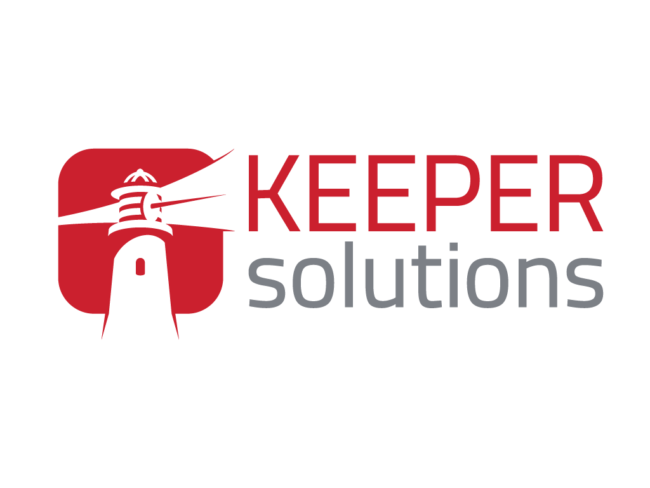In-House vs Outsourcing Software Development
If a company is undertaking a new software project, whether bringing a new technology to market, expanding their range of products or trialling a new idea, one of the first questions that come up is whether to choose in-house vs outsourcing software development or, in other words, whether to build a team of in-house developers or work with an outsourced software development team.
Working with an outsourced software development partner is quickly becoming the norm. According to research by Avasant Research, “across sectors, an average of almost 60% of organizations outsource app development. In the financial services sector, that rises to 72%, followed by retail/wholesale companies at 60%.” Similarly, the number of startups opting to outsource software development is expected to increase by 70% in the next year, according to the 2022 State of Tech Staffing report from Commit.
In this blog post, we will look at some of the key things that a company must consider when deciding between in-house vs outsourcing software development, including the strengths and weaknesses of both.
Note: Often, it isn’t a straight choice between in-house vs outsourcing. Outsourced software development teams can work alongside, and complement, existing in-house units. Companies can have a small group of permanent employees alongside a flexible outsourced software development team.

In-House Software Development: Strengths and Weaknesses
In-house software development involves using the skills of your internal team to build your own software. More often than not, developing software internally requires a company to first increase their in-house numbers and hire new, full-time employees. There are many benefits of building an in-house software development team.
-
-
-
-
-
-
-
-
-
-
- Building company culture – One of the key benefits of building an in-house team is the opportunity to build a rich company culture. In-house development allows you to hand-pick people that embody the company’s core values. Existing employees understand the organization’s motivations, overall strategy and identity. It is also easier for in-house teams to socialize together at corporate events and parties. These non-work-related activities can boost morale, make people feel more connected and increase work cohesion. This can be immensely valuable.
-
-
-
-
-
-
-
-
-
-
-
-
-
-
-
-
-
-
-
- No language barriers – Often when a company outsources software development projects they can end up working with teams in different countries with different cultures, values, work practices, and even languages. This can sometimes lead to breakdowns in communication and project delays. This issue is almost entirely avoided when working exclusively with an in-house team.
-
-
-
-
-
-
-
-
-
-
-
-
-
-
-
-
-
-
-
- Ease of communication – When in-house teams are collaborating every day they can build strong working relationships. In-house teams become familiar with each other’s work habits and workflows. When an issue needs to be discussed, it can often be done face-to-face without needing to schedule meetings.
-
-
-
-
-
-
-
-
-
While it can be hugely advantageous to build a strong in-house team, there are significant drawbacks that must be considered.
-
-
-
-
-
-
-
-
-
-
- Difficulty in finding the right talent – While building a quality in-house team can be very beneficial, in reality it’s not that straightforward. The developer market is incredibly competitive and it can be extremely difficult to find the right talent, while staying within budget.
- Significant time investment – We don’t want to place too much emphasis on cost. Often companies can reduce costs by working with a software outsourcing partner but we don’t believe it should be a deciding factor. While saving on costs is obviously a great benefit to a growing business, our advice is to never put cost-saving before quality. That being said, there is another type of cost that is crucial to consider, and that is time cost. Building an in-house team often requires a significant time investment. The recruitment process is often much longer, then there is onboarding and training. All of this slows down the development process.
- Slower time to market – Undertaking a recruitment drive, finding the right talent and then making sure they are properly training can eat into development time. This can significantly reduce time-to-market. When it comes to gaining a competitive advantage, time-to-market is crucial. Any time wasted building in-house teams can prove costly in more ways than one.
-
-
-
-
-
-
-
-
-

Working With a Software Outsourcing Partner: Strengths and Weaknesses
Software development outsourcing involves engaging with a third-party team or partner to help develop your company’s software solutions. Below are some of the key advantages of working with an outsourced software development team.
-
-
-
-
-
-
-
-
-
-
- Ability to scale up and down resources – Organizations often only need to increase numbers for a short period of time or to achieve certain project objectives. When a project finishes and you are left with a huge team of developers, it can put a major strain on finances. When working with an outsourcing partner you can scale up and down resources depending on the workload and current tasks.
- Gain access to a bigger pool of talent – For companies looking to hire developers, especially in the United States, the software engineering and software development talent pool is incredibly competitive. Demand is at an all-time high and hiring suitable, highly-skilled candidates can be very difficult. Outsourcing software development removes geographical boundaries, giving you access to a pool of world-class talent.
- Expert domain knowledge built-in – When hiring in-house talent, organizations need to think about more than just specialized skills. On top of finding highly-skilled individuals, companies have to consider domain expertise. Developers and engineers need to understand the industry and its requirements. Finding candidates with this level of proficiency can be a real challenge. However, if you choose your outsourced development partner correctly, you can work with a team that specializes in your industry and so domain expertise is built-in.
-
-
-
-
-
-
-
-
-
As with anything, there are disadvantages of working with an outsourced software development partner. However, most of these can be avoided by choosing the right partner. More often than not, breakdowns occur when companies partner with a team that isn’t a good fit. That is why it’s so important to carefully select your software outsourcing partner and select a partner that aligns with your company’s values.
-
-
-
-
-
-
-
-
-
-
- Trust issues – CTOs often say that in-house development teams are their preferred solution for scaling software operations. They think that there’s no way an ‘external’ team could understand their product, or be trusted to work within the particular environment. This lack of trust can severely hinder development. That is why it’s so important to find the right cultural fit.
- Reduced control – When working with an in-house team, companies are in complete control of the development process from start to finish. However, there may be a sense that this control is reduced when working with an outsourced software development team. This often requires a change of perspective. When working with an outsourcing partner, they should feel like part of your extended team. Successful partnerships are built on a foundation of trust and transparency.
- Poor communication – When you are working with an outsourced team in a different location or time zone, there can be breakdowns in communication. This can be avoided by establishing boundaries, expectations and communication channels from the outset.
-
-
-
-
-
-
-
-
-

Conclusion: In-House vs Outsourcing Software Development
As you can see, there is a lot to consider when deciding between in-house vs outsourcing software development. There are occasions when it makes sense to work with your own in-house team but, more often than not, it’s a lot easier and more manageable to work with a software outsourcing partner.
If you do decide to work with a software development partner, it’s important to choose the right one. You need a partner that aligns with your values, has the right expertise and is a good fit for your company. To help you make your decision we’ve created a simple 8-step process for choosing a software development partner.
This includes:
-
-
-
-
-
-
-
-
-
-
- Develop Clarity Around What You’re Building And Your Needs
- Choose an Engagement Model
- Create a Shortlist of Suitable Software Outsourcing Partners
- Do Your Research
- Find Evidence of Relevant Industry/Domain Expertise
- Don’t Overlook the Importance of Cultural Alignment
- Consider Advisory and Consultancy Capacity
- Choose the Best Fit and Focus on Building Long-term Relationships
-
-
-
-
-
-
-
-
-
Learn more about our 8-step process by checking out this blog post.



